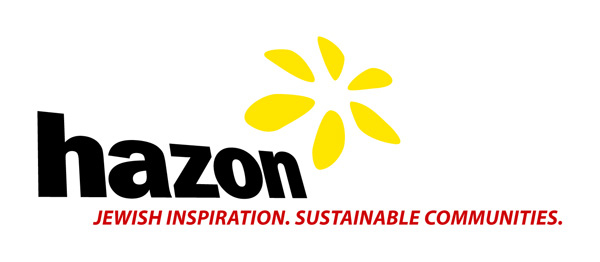- About
- Green Resources
- Sustainable Kiddush – How to Host One
- Healthy and Sustainable Rosh Hashanah Resources
- Kosher Sustainable Cheese List
- Kosher Sustainable Chocolate List
- Books, Films, & Cool Stuff
- Family Farm Vacations
- Top 10 CSA Must Haves
- Greening Your Shabbat Table
- Kosher, sustainable meat
- Healthy, Sustainable Purim Resources
- Healthy, Sustainable Passover Resources
- Sustainable Simcha Centerpieces
- Glossary
- Healthy Sustainable Shavuot Menu
- Hazon Food Values, Policies & Best Practices
- Kosher Organic Wine List
- Recipes
- Contributors
Join Hazon's Mailing List
-
What We're Reading



Books in Our Kitchen
Feeds
Meta
To Prey or to Pray? The Lessons of Famine on Tisha B’Av
Tisha B’Av (the 9th day of the month of Av – an annual fast day in the Jewish tradition) can be a meditation on hunger, and even more so on thirst, coming as it does in the heat of summer. Though fasting is not famine, it brings us one small step closer in our bodies and imaginations to what it might have been like during the siege of Jerusalem, or even to what it is like now, whenever famine strikes the victims and refugees of war.
The book we read on Tisha B’Av, Lamentations or Eikhah, is filled with images of hunger and famine, along with all other kinds of tragedy. I first got into Eikhah in a special way. It was shortly after a break-up, and I was aching so much I could hardly stand it. I was doing anything I could to distract myself (even jogging, which is not exactly my thing), but on Tisha B’Av you’re not allowed to be distracted by music or movies, or even by regular Torah study, and exercise on a no-water summer fast isn’t a smart idea. So I decided I would try to translate Lamentations. That led me to many years of engagement with the text, and to composing a powerful translation that I now distribute through my website.
One of the truly difficult passages in Eikhah (4:10) describes cannibalism as a response to famine:
Women’s compassionate hands cooked their own children
to become their food supply,
during the breaking of my daughter people.
The Tanakh (as we call the Bible), contains other horrifying images of cannibalism during famine. One story (2 Kings 6:26-30) sticks out:
It happened that the king of Israel was crossing over the wall, and a woman cried unto him, saying, “Save me, my lord king!” And he said, “YHVH [God] won’t save you! From where could I save you—from the threshing floor or the wine vat?”
And the king [then] said unto her, “What happened to you?” and she said, “This woman said unto me, ‘Give your child and we will eat him today, and my son we will eat tomorrow.’ And we cooked my child and ate him. And I said unto her on the day after, ‘Give your child and we will eat him,’ and she hid her child.”
And it happened as the king heard the words of the woman, and he tore his clothes and he was crossing over the wall, and the people saw: and here, there was sackcloth on his flesh inside.
You can almost see the king doing a double-take when he hears the woman’s cry. He first taunts her with the emptiness of the threshing floor and wine vat, but then he invites her to tell her story. (Note how the king speaks “to her” the second time.) There’s a tragi-comic dimension to this story, which makes it seem like a fable. The image of God in this vignette, at least in the king’s eyes, is of a god who can’t save the people. (This image is dispelled when Elisha’s prophecy that food will be abundant by tomorrow comes true.) The bottom line in this story is that God’s role in the famine is ambiguous.
In Eikhah (1:15), however, God is neither bystander nor redeemer, but rather the direct instigator of the tragedy:
[God] called out over me a feast for breaking my boys;
a winepress—Adonai stomped—for daughter Judah’s girl.
The winepress which is empty becomes full and fills the vat, the feast is supplied, by the flesh and blood of the children. Is the point to gross us out? Make the exiles feel horrible, guilty, unredeemed? A quick review of some images of famine and abundance in the Torah suggests an answer. In the following passage from Leviticus (26:3-38, abridged), there are four kinds of eating relationships that unfold in order, from good to bad to worse.
If you will walk in my statutes, then I will give your rains in their season and the land will give her produce and the tree his fruit, and I will set peace in the land. And I myself will walk in the midst of you.
And if you will not listen, to undo my covenant, I will set my face against you, and your land will not give her produce and the tree of the land will not give his fruit. I will send out against you the animal of the field and she will make you childless.
And if with all this you will not listen to me and still walk with me in opposition, I will walk with you in a fury of opposition. And you will eat the flesh of your sons and your daughter’s flesh you will eat.
And I will leave your cities destroyed, and throw you into the nations, and the land will enjoy her Sabbaths. All the days of her being deserted she will rest what she didn’t rest in your Sabbaths when you dwelled on her. And you will be lost in the nations, and the land of your enemies will eat you.
The first paragraph describes what happens when we treat the land well: we are sustained abundantly, eating from her produce. In the second paragraph, which describes the first level of consequence for hurting the land, the eating relationship between human beings and animals is reversed, and our children become prey for the predators. In the third, the relationship between parents and children is undone, and we become our own prey. This is the image of cannibalism. Finally, in the fourth paragraph, the land eats us, instead of us eating from the land, an ultimate reversal of the way things should be.
Theologically, the horror of cannibalism is almost not the point. The people’s downfall came because they mistreated the land, the source of their food. By doing so, they undid the normal way of eating and living, what the rabbis call derekh eretz, which means literally the way of the land. Leviticus continues (26:39-44 abridged):
And the ones left will confess their sin, then their thick-skinned heart will be bent-into-shape, and I will remember my covenant, and the land I will remember.
In one sense, the point is that no matter how horribly things have gone wrong, they can be reversed. But the foundation of this hope is that God’s covenant with the land has not ended. When we restore ourselves to God and to doing justice, we also restore ourselves to the land, righting the relationships of eating and taking that have become disordered.
This gets to a deeply emotional point about Eikhah: even though it sounds like it’s about God punishing us, it’s really about us hoping that God still cares enough to punish us. It’s not a theology of evil, but a prayer, a hope, that awful occurrences prove that God still does care, instead of proving God’s indifference or God’s non-existence. I realized that this is what it meant when I first started doing that translation years ago—because it mirrored what I was going through personally, holding on to the belief that the person I loved would come back if only I changed this or that.
She didn’t come back. But we Jews believe that God will come back (or that we will come back to God). We haven’t given up on restoring our relationship with God. The other side of Eikhah‘s reflection on punishment is when it holds up a mirror to God in order to show that the punishment went too far, beyond any measure of justice. That’s how the image of cannibalism functions later in the book (2:20):
See YHVH and look: Whom did you treat like this?
If women would eat their fruit, coddled babies – !
The implication is that God has so far refused to look, and that if God saw what was happening to us things would be different.
So, is the cannibalism there just to make a theological point? Did it really happen? There are two testimonies I found on the web about the cannibalizing of children during other famines, but it’s hard to tell. What we know for sure is this: when we use up the land and the planet without concern for future generations of people, or of other animals, plants and ecosystems, we are in effect eating our children.
Let’s hope we can turn ourselves around before things get too literal.
– Reb Duvid
David Seidenberg is the creator of neohasid.org, where you download and print out Eikhah, listen to nigunim and songs, learn eco-Torah, and more.

7 Responses to “To Prey or to Pray? The Lessons of Famine on Tisha B’Av”
-
Renana Says:
August 7th, 2008 at 2:10 pmYour points are quite well made and I enjoyed reading the d’var, but it fails to address the fact that the ‘caring’ God allows innocent children to go hungry and eventually be eaten because of the sins of their parents. The famines and punishments in the tanach are always justified by the actions of the Jewish people, but they also seem to bring pain on those who do not deserve it. Today there are millions of people who starve to death from famine, and it is not because of some moral misdeed. I may be able to learn from this story that God punishes us because God cares, but the reality of the world just doesn’t seem to support the morality of the story.
-
Jenn Says:
August 8th, 2008 at 9:28 pmIn response to Renana’s comment–I think the question is not about morals or the punishment of innocent children, but rather an acknowledgement of cause, conditions and effects (what other traditions call karma). If we are in alignment with our covenant with God–the results of our collective actions will be beneficial to our children–the narrative in Eikhah speaks to a misalignment and the consequent impact of this misalignment. So, it’s not about God’s “punishment” of innocent children–it’s about our own capacity to see clearly the consequences of our collective actions. If we see this connection with clarity it becomes a compelling stimulus toward right relationship with the land and her bounty.
-
Keith Barton Says:
August 10th, 2008 at 3:24 amI just attended a reading of Eikha this evening. I think it describes the conditions that will soon confront the US, not to mention many other places which already face the desolation of hunger and separation from the land as the trajectory of capitalism and globalization drive people to shanty towns to survive.
The question that confronts the person who takes the Tanach seriously is WHICH of Torah’s many laws take precedence: feeding the hungry, gleaning of fields, defending the widow and orphan, paying just wages, terminating debts and servitude, avoiding idolatry, granting sabbath to the land, sexual purity. There is no concept in Torah of fossil fuels, crop rotation, global warming, public transportation,family planning, Malthus, ethanol from grains, herbicides, insecticides, etc. Creating eco-Kashrut sensitivity requires an extrapolation from the rabbinic codes, which are themselves an extrapolation from Tanach.
I’m all for eco-Kashrut sensitivity, but there are those who attribute the current calamities exclusively to sexual impurities in modern society, and they are arguably closer to the text of Torah than those who have a neo-Hasidic eco-Kashrut sensitivity.
I realize that the Tanach is for everyone to use and to interpret, but that in itself means that it will never be the basis of a widespread consensus on these critical issues. In many ways, we are as handicapped today as the prophet Jeremiah was in the face of Nebuchadnezar’s army. The more things change, the more they remain the same. Eikha! -
Megillat Eikhah (Lamentations) for Tisha B’Av by Rabbi David Seidenberg « the Open Siddur Project Says:
January 3rd, 2014 at 3:14 am[...] as a PDF at neohasid.org. For Reb Dovid’s essay on cannibalism in Eikha, please read “To Prey or to Pray? The Lessons of Famine on Tisha B’Av” (The Jew & the Carrot blog, [...]
-
Megillat Eikhah (Lamentations) for Tisha B’Av by Rabbi David Seidenberg (neohasid.org) « the Open Siddur Project Says:
January 14th, 2014 at 1:10 pm[...] as a PDF at neohasid.org. For Reb Dovid’s essay on cannibalism in Eikha, please read “To Prey or to Pray? The Lessons of Famine on Tisha B’Av” (The Jew & the Carrot blog, [...]
-
תשעה
באב | Megillat Eikhah (Lamentations) for Tisha B’Av by Rabbi David
Seidenberg (neohasid.org) « the Open Siddur Project ✍ פְּרוֺיֶקט
הַסִּדּוּר הַפָּתוּחַ Says:
April 21st, 2014 at 3:46 pm[...] as a PDF at neohasid.org. For Reb Dovid’s essay on cannibalism in Eikha, please read “To Prey or to Pray? The Lessons of Famine on Tisha B’Av” (The Jew & the Carrot blog, [...]
-
מְגִלַּת אֵיכָה | Megillat Eikhah (Lamentations), translation by Rabbi David Seidenberg (neohasid.org) • the Open Siddur Project Says:
July 23rd, 2019 at 10:25 pm[...] Reb Dovid’s essay on cannibalism in Eikha, please read “To Prey or to Pray? The Lessons of Famine on Tisha B’Av” (The Jew & the Carrot blog, [...]
Leave a Reply
Join Us
- No items.
Featured Posts
Holiday Posts
- Cupboard Cleaning Challenge
- Foraging locally for Pesach
- Interfaith Hillel Sandwich
- Make Kwanzaa Cake for Passover–If You Dare
- New Podcast – RideCast Special
- On Nisan and on Recalling
- Passover Cleaning: Year One
- Pesach and Food Justice
- Rescue Chocolate Introduces “Don’t Passover Me” Bark
- The Haroset Taste-Off
- This Year in the Food Desert…
- Win A Copy Of the Gluten-Free Almond Flour Cookbook by Elana Amsterdam
- Yid.Dish: Beer Bread (AKA Emergency-Use-Up-My-Beer-Before-Passover Bread)
- Yid.Dish: In Search of the Perfect Cheesecake
- Yid.Dish: Maple Pecan Matzah “Granola”
- Yid.Dish: Quinoa, a Passover Game-Changer
Interviews
- An Interview with a Chef Kosher Creator, and a Cooking Contest!
- Change from Within: An Interview with Rabbi Gordon Tucker
- CSAs say: “Cheese Please”
- Did The Agriprocessors Boycott End Too Soon? An Interview with Ari Hart
- Eat Your (Organic) Veggies: Interview with Ella Heeks
- Eating Your Values: An Interview with Dyonna Ginsburg
- Fruity Encounters: Interview with Adam Gollner (Win His Book)
- Get Up and Grow: Interview with Michael Ableman
- Going to the Source: A Look at Sustainable Dairy through the Eyes of a Dairy Farmer
- Growing Spiritually Healthy on an Urban Farm: An Interview with Reverend Robert Jackson
- Interview with Laura Frankel
- Interview with Rachel Rosenthal on the Tav YaHosher Launch
- Jewish CSA: The Perfect Shidduch
- Jews Save the World, Again: Interview with Rabbi Julian Sinclair
- Meet Sandorkraut: Interview with Sandor Katz
- Michael Pollan on Why $8 For a Dozen Eggs Makes Sense
- New Podcast – RideCast Special
- New Podcast Episode with Wilderness Torah’s Julie Wolk
- One Year After the AgriProcessors Raid: An Interview With Shmarya Rosenberg
- Scott Stringer and his Urban Food Movement
- The View from Your Fork: An Interview with Michael Pollan
- Warning! Strong Opinions and Wistful Thoughts: An Interview with Lagusta Yearwood
- What do you do with an Ample Harvest? An Interview with Gary Oppenheimer
Laugh Out Loud Posts
- “A Jew’s Natural Weight is 400 Pounds.”
- Ask the Shmethicist: WWMPD? (What Would Michael Pollan Do?)
- Beet Haikus from the Scottsdale Hazon CSA
- Cookin’: The Show!
- Dust with Powdered Sugar
- Kosher “Organic Batter Blaster” vicariously attends the Hazon food conference
- Loco for Locavore: Bashing the Local Food Backlash
- Oreo vs. Hydrox
- Twelve Months, Three Corners
- Waffle Bike
- What Does a Vegan Zombie Eat?
- What is the Opposite of Locavore?
- What’s in YOUR Mishloach Manot Basket?
- What’s Your (Jewish Food) Sign?
- Yes, We Peanut Butter!
Most Controversial Posts
Most Inspiring Posts
- Back to Baking – Honey Challah
- Combating Food Deserts in Louisville, Kentucky
- Federation of Jewish Farmers
- Getting Off The Bottle
- Hazon Invited to White House for Let’s Move Initiative
- How does our garden grow?
- Jewish Farmers Roll Into Town
- Leaving Adamah, Finding Home
- Mazal tov to the Joshua Venture Fellows!
- My White House Reflections
- Nigel Savage on DIY Food Values
- The Jewish Food Movement: Goals for the Next 7 Years
- Thoughts on becoming a shochet
- vote before shabbat for Slow Money to rank as one of the top 10 best ideas for change
- Watch Live Tonight: LA Hunger Seder 2010
- Who Brings Forth Bread From the Earth
Browse by Category
Browse Archives by Month
Our Blogroll








